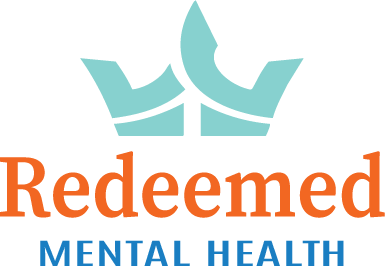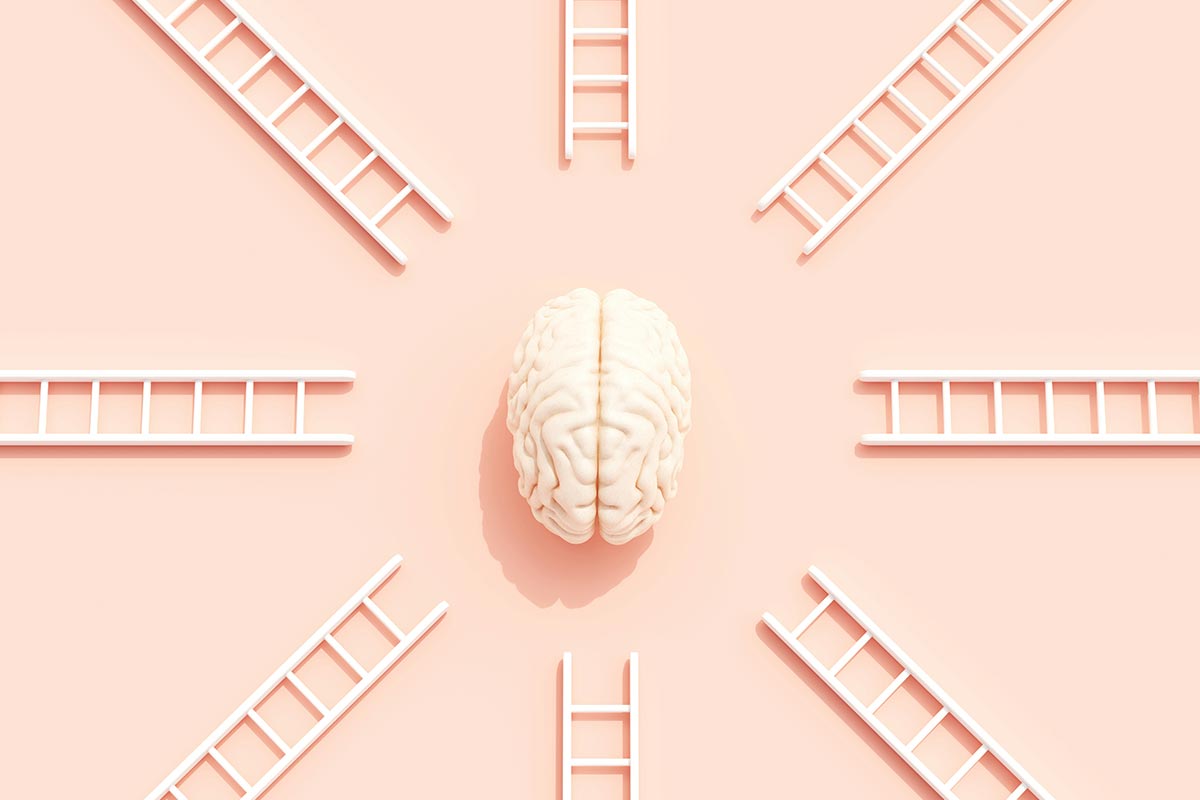Overcoming Trauma from a Narcissistic Parent
![]() Redeemed Mental Health
on
September 30, 2024
Redeemed Mental Health
on
September 30, 2024
 Narcissism or narcissistic personality disorder is a mental health condition that affects between 0.5% and 5% of all people in the United States. It’s extremely common and, until recently, very often left untreated. Today, we know that narcissistic personality disorder can be treated and mitigated with therapy, counseling, and ongoing work – providing the individual is motivated. Yet, for many of us, that lack of treatment in the past meant growing up with parents who were not in control of themselves or their behavior around others – including their children.
Narcissism or narcissistic personality disorder is a mental health condition that affects between 0.5% and 5% of all people in the United States. It’s extremely common and, until recently, very often left untreated. Today, we know that narcissistic personality disorder can be treated and mitigated with therapy, counseling, and ongoing work – providing the individual is motivated. Yet, for many of us, that lack of treatment in the past meant growing up with parents who were not in control of themselves or their behavior around others – including their children.
The result can very often be that you are exposed to trauma, as a child and as an adult. Your parent may be manipulative, selfish, may gaslight you, and may create a situation in which it is difficult for you to have self-esteem or a sense of self trust. That can be extremely difficult to navigate, and it does count as emotional abuse and trauma, even if your parent doesn’t intend anything that they do.
Acknowledge the Abuse
The first step to moving on from abuse and from trauma is to recognize it and to frame it. If you go to therapy such as cognitive behavioral therapy, much of your treatment is based on the concept of framing things that happened to you in a way that allows you to acknowledge them, regain control, and move on.
That often means:
- Understanding that how you were treated was actually abusive, even if your parent loves you and they mean well
- Categorizing whether your parent is hurting you by accident or if they have had chances and conversation and refuse to work on themselves
- Understanding that it is okay for you to feel trauma, your pain is valid, and you deserve to get help and support for it.
A narcissistic parent may mean that you have trouble not telling yourself you’re just blowing things out of proportion, that they are fine and you are taking things badly, that things didn’t really happen that way, etc. You’re likely not used to being validated that things were bad for you and that it’s okay to feel bad about them. But, that’s an important step, even if your parent doesn’t agree.
Set Boundaries
 If your parent is still part of your life it’s important to set boundaries. People with narcissistic personality disorder will often push boundaries as much as they can. They’ll also push and try to go around boundaries once you set them. What does this mean for you? It means:
If your parent is still part of your life it’s important to set boundaries. People with narcissistic personality disorder will often push boundaries as much as they can. They’ll also push and try to go around boundaries once you set them. What does this mean for you? It means:
- Set boundaries around emotional safety. Which behaviors are you willing to put up with, which are you not?
- Set repercussions for your parent crossing boundaries
- Be ready to cut off contact or reduce contact with your parent if they can’t respect your boundaries.
Good boundaries look like, “If you try to manipulate me, I will step out of the conversation”, “If we are going to continue to have a relationship, I need you to go to family therapy with me”, “I cannot accept you raising your voice at me, if you raise your voice at me I will step out of the conversation”, “I need you to acknowledge how you made me feel when you hurt me, even if you didn’t do so on purpose”. You can’t expect people to be perfect, even if they are trying as hard as they can – but you can set steps that allow you to protect your own mental health.
Whether those boundaries are about not having your parent in your life or your parent interacting with you in healthy ways is up to you. However, it’s important that you trust yourself enough to back up your boundaries and follow through on them. Otherwise, boundaries won’t help and will just set up more scenarios in which you will feel hurt by your parent.
Let Go
Your parent has a mental health disorder. That means you have to detach from the idea that they will ever be able to treat you in a way that is not inherently narcissistic. If your parent is getting therapy they may be able to mitigate and manage those symptoms. However, they will always have narcissistic personality disorder. Your goal should be to acknowledge that your parent hurt you, decide how much you’re willing to continue to invest in them, and then get help for yourself. That means letting go of ideas of your parent recovering, turning over a new leaf, or somehow making things better. It also means letting go of having expectations for your parent to do better because chances are very high that if they could with the tools they have now, they would.
Rebuild Your Trust in Yourself
If you’ve grown up with a narcissistic parent, you’ve probably learned not to trust your own experiences or your memory. That means it’s important to figure out how to rebuild trust in yourself and in how you feel. Going to therapy is a good start. However, most people also benefit from steps like recording experiences, going over them later, validating experiences with others, and working to have healthy experiences and conversations with others.
- Write down how you feel and keep a mood journal or a diary
- Ask to record conversations if you feel you’re being gaslit
- Build a network of supportive people you can talk to and talk about things with
- Validate your feelings and acknowledge that you feel hurt, even if you aren’t sure what the situation was.
Rebuilding being able to trust that your emotions are valid, that your experiences are valid, and that your experience of things is not something that should be brushed off is important. That’s even true if you also have mental health problems because you don’t have to be right or to remember things correctly in order to be hurt.
Get Professional Help
 It’s important to talk to your doctor, to look into mental health treatment, and to get professional help with trauma. That often means starting at your doctor and being referred into a mental health treatment program that can help you work through your experiences, their effects, and help you to feel more in control of your life and your emotions. It might also include family therapy, which will help you better understand your relationship with your parent and to work out how to have a healthy relationship together. Eventually, that professional support may mean working through your experiences and problems and cutting your parent off, or getting them into treatment and working to build a future together. However, that will depend on you, what you want, what your parent wants, and what they are willing to invest in.
It’s important to talk to your doctor, to look into mental health treatment, and to get professional help with trauma. That often means starting at your doctor and being referred into a mental health treatment program that can help you work through your experiences, their effects, and help you to feel more in control of your life and your emotions. It might also include family therapy, which will help you better understand your relationship with your parent and to work out how to have a healthy relationship together. Eventually, that professional support may mean working through your experiences and problems and cutting your parent off, or getting them into treatment and working to build a future together. However, that will depend on you, what you want, what your parent wants, and what they are willing to invest in.
Narcissistic personality disorder is extremely common. It can also be difficult on everyone around you – because people with narcissism have difficulty managing their behaviors around others. That can mean you have a parent who is entitled, manipulative, envious, and lacks empathy – even if they care about you a great deal. Eventually, that can and does result in trauma and it’s important that you take steps to acknowledge that and to get treatment, so you can recover and live your life.


 Boundaries are important for reducing the amount of hurt you feel in the future. For example, if you see someone often, you may want to set boundaries around insensitive comments.
Boundaries are important for reducing the amount of hurt you feel in the future. For example, if you see someone often, you may want to set boundaries around insensitive comments. Educate Where You Can but Choose Your Battles
Educate Where You Can but Choose Your Battles Getting Help
Getting Help




 Assisted living and supported living solutions are an ideal way to rebound from psychosis and jail. Here, you’ll stay in a shared home for several months, sometimes longer. There, you’ll have a routine, set meal times, people to check up on you, and accountability. If you stop going to treatment or stop taking care of yourself, people notice. If you stop spending time with the group or sharing meals, people notice. That forced accountability can be an important part of recovery because it forces you to adopt the routines and schedule of self-care that can help you to stay in recovery.
Assisted living and supported living solutions are an ideal way to rebound from psychosis and jail. Here, you’ll stay in a shared home for several months, sometimes longer. There, you’ll have a routine, set meal times, people to check up on you, and accountability. If you stop going to treatment or stop taking care of yourself, people notice. If you stop spending time with the group or sharing meals, people notice. That forced accountability can be an important part of recovery because it forces you to adopt the routines and schedule of self-care that can help you to stay in recovery. Long-term care means investing your health for the long-term that means investing in self-care and ongoing support. This means:
Long-term care means investing your health for the long-term that means investing in self-care and ongoing support. This means:





















